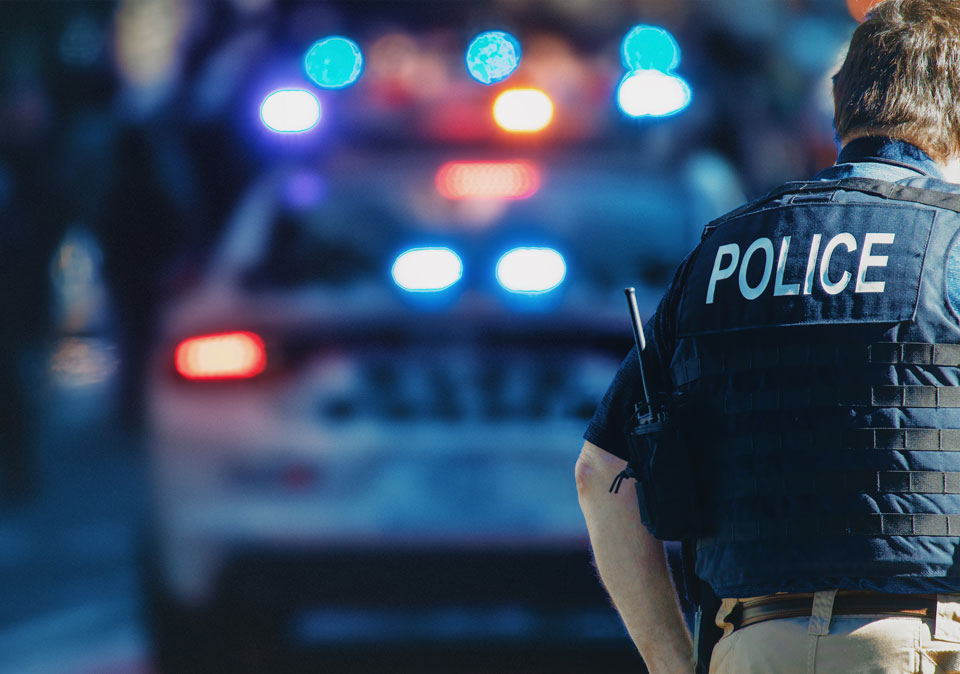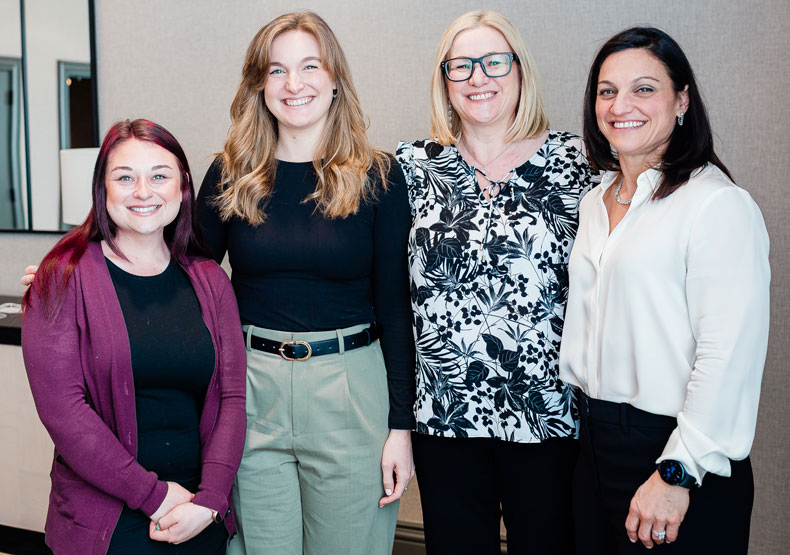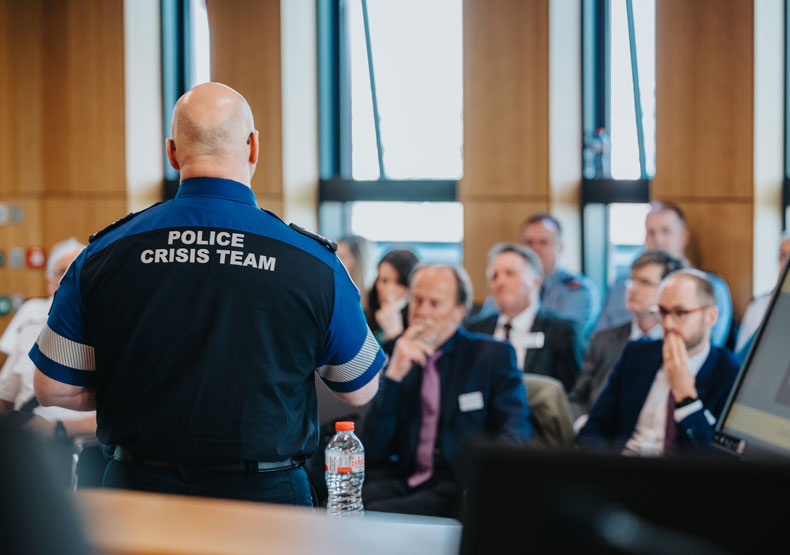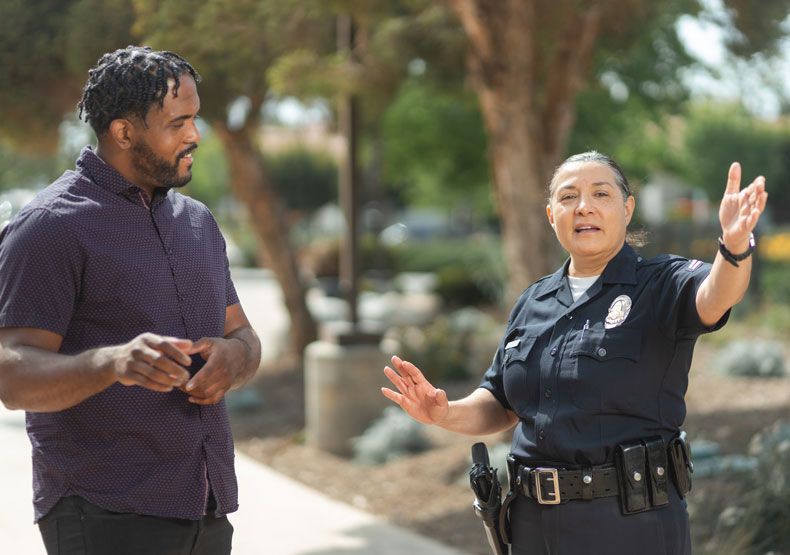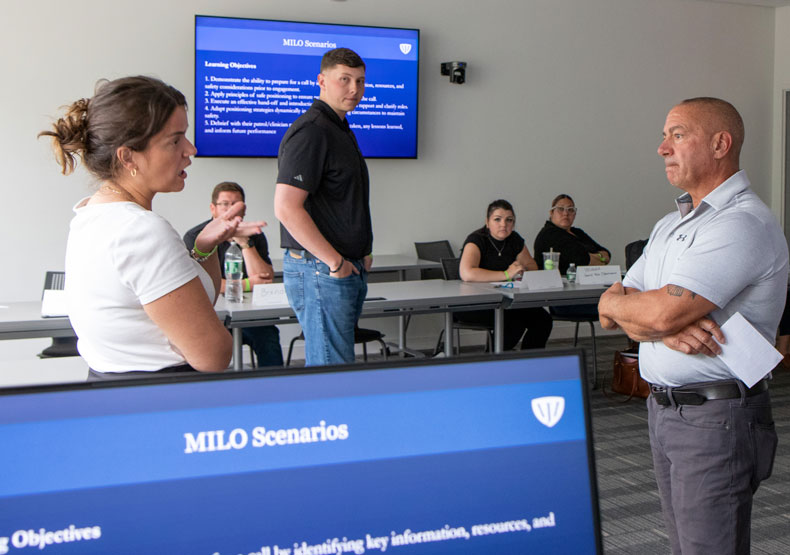Crisis Response and Behavioral Health
Crisis Response and Behavioral Health
About the Center
The Center for Crisis Response and Behavioral Health (CRBH) provides training and education to law enforcement and mental health professionals on effective response methods for encounters with individuals who are experiencing a psychiatric, substance-related, or mental health crisis. Programs address a critical need for reimagining and expanding roles and opportunities in public safety and seek to create effective partnerships between mental health and law enforcement.
Through continuing education, webinars, and the nation's first graduate certificate program in Co-Response, our curriculum offers law enforcement and co-response clinicians the skills needed to identify, manage, and de-escalate situations involving persons in crisis.
Left
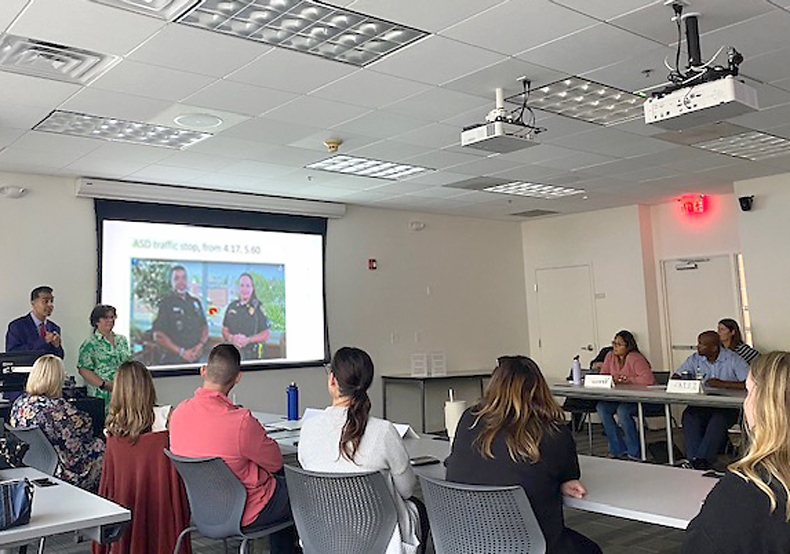
Save the dates
5-Day Co-Response Intensive Training
Professional Training for Co-Responders and Law Enforcement
Join us for a comprehensive 5-day Co-Response Intensive Training Program at William James College. This program is designed to enhance your skills and expertise in the field of crisis response, providing you with the opportunity to network with fellow co-responders and law enforcement and to stay current with the latest best practices. It’s a great way to deepen your knowledge and expand your professional network in the field of Co-Response.
Dates and Locations
September 15–19, 2025 (William James College)
November 3–7, 2025 (Holyoke Police Academy)
February 2–6, 2026 (North Shore area)
May 4–8, 2026 (South Shore area)

A Case Study
Police-Clinician Co-Response Calms Campus Mental-Health Crises
Featured Contributor: Dr. Sarah Abbott, Director of Crisis Response and Behavioral Health, William James College
Dr. Sarah Abbott, Director of the Center for Crisis Response and Behavioral Health, contributed to a report co-produced by The Chronicle of Higher Education and AT&T. Below is an excerpt from the report.
“If a college student has a mental-health crisis, a uniformed, armed police officer knocking on the door might not be the most comforting, constructive response. It can escalate tensions, leading to panic, misunderstandings, or unnecessary forcible hospitalization or arrest. Often a better course is empathetic listening, calm diagnostic screening, and efficient connection of the student with campus counseling, medical, and other resources.
That’s why an increasing number of colleges are instituting co-response programs that pair campus police officers with clinicians to handle wellness checks and other mental-health-related calls.”
Center Highlights

International Co-Responder Alliance
The CRBH is a participating member of the International Co-Responder Alliance (ICRA). The ICRA was established to unite, promote, strengthen, and expand multi-disciplinary co-responder programs, while improving outcomes for first responders, behavioral health professionals and individuals affected by behavioral health issues.
